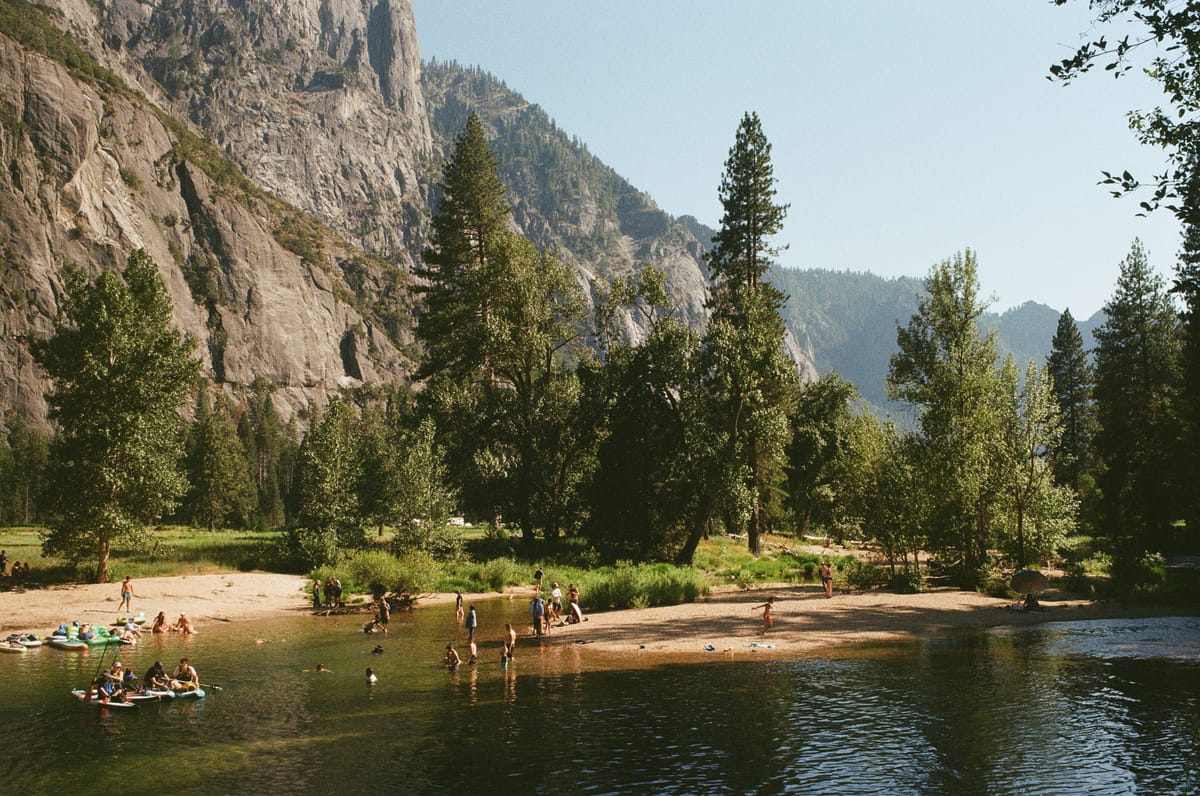Don't miss our August sale:
50% off an annual subscription — that’s 72p a week for a year. (Discounted monthly subscriptions are also available.)
Stuck in a snaking line of cars in 80-degree heat, tour buses idle behind minivans, but the scent of pine still cuts through the fumes. The websites warned of hours-long queues, but miraculously your car’s tires roll past Yosemite’s entrance gate in less than 25 minutes.
“Very quick for a summer Saturday,” a ranger jokes as he hands you a map. “You should have seen it last weekend.”
After a half-hour descent into the valley, you can finally get out. High above, the granite cliffs are so tall they don’t fit in your iPhone’s viewfinder. Among the network of tall pines, you’ve never been so small.
That’s Yosemite for you. Home to more than 400 species of animals, 1,500 species of plants, and roughly 4 million annual visitors, the park has stood, since President Lincoln first preserved it, as a radical idea: that some landscapes are too magnificent to belong to private individuals, and instead should be given to the nation.
Today, this legacy is at risk. Over the past six months, full-time staff at the National Park Service (NPS), the agency that governs the park, have been cut by 24% — the result of layoffs, buy-outs, and a hiring freeze from the Department of Government Efficiency (DOGE). Of the 8,000 seasonal positions allotted by President Trump’s budget, barely 4,500 were filled by July 9. The Center for American Progress estimates future cuts could reach a third of the NPS’s total budget. At the same time, the government has moved aggressively to open more public land to mining, logging, and energy extraction.
On a desperately hot July Saturday, I came to Yosemite to see how these pressures were reshaping the park. What I found was a patchwork of band-aids and resilient optimism: a small band of staff doing their best to hold things together as the crowds kept coming.
Park rangers are generally barred from speaking publicly about their work, but the few who did anonymously painted a bleak picture. One complained of a “horrible, horrible atmosphere” now rampant in the service. A second observed “a noticeable shift in the last couple of months” after veteran staff were pushed out. “The burnout is real,” a third concluded.
Earlier this year, frustrated rangers arduously climbed Yosemite’s most famous granite cliff, El Capitan — and hung an American flag upside-down.
Register for free to read this article.
